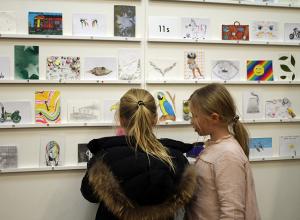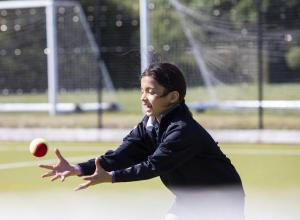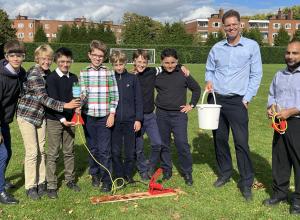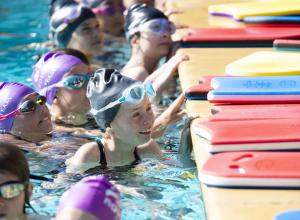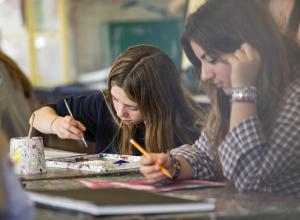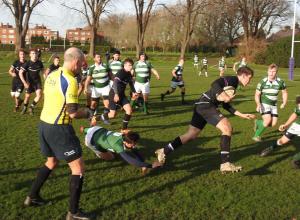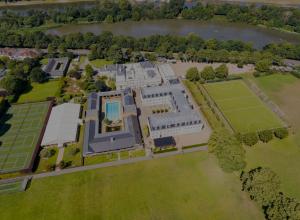
In a world that's dangerously broken and insular, Harrodian's brand of tolerant and open-minded internationalism provides a beacon of optimism, argues Andy Woodward
I am English. My mother and father are English. My four grandparents were English, as were their parents. And theirs too. And it’s at this point in the family tree that we finally encounter our legendary Ecuadorian circus hand! Just kidding – we don’t… Whatever else I’m bringing to Harrodian, it’s not diversity or exoticism.
It’s perhaps on account of these dullard roots that I have always so appreciated the international flavour of our school. I see it as a real, and often overlooked, advantage of Harrodian life that, to generalise somewhat, half of those in any class here will most likely hold a non-British passport. Loiter around the café (Covid era notwithstanding) and you will probably hear the odd table conversing in Spanish or Italian, Russian or Arabic.
I have always so appreciated the international flavour of our school. I see it as a real, and often overlooked, advantage of Harrodian life that half of those in any class will most likely hold a non-British passport.
Now, it’s interesting to pause there and feel your instinctive response. I believe the vast majority who have chosen Harrodian for their child will agree this is positive. Nonetheless, I’m also aware that such a reaction is not always guaranteed among society at large. There may be, to some, a vague sense of threat implied in the concept of an environment in which some all-important ‘Britishness’ is diluted. Recent years – and in many ways they have been tough years – have seen an increased scapegoating of the ‘other’, whomever that may be, amidst a wider trend of tribalist re-entrenchment. Nationalist demagogues across the Western world appear to have found their voice and their audience, while public discourse seems more ready to shout than to listen.
I will confess therefore to feeling some measure of satisfaction if in some small way we can help our pupils emerge with views set in opposition to all that. I suspect it’s true that any instinctive suspicion of those who seem different from ourselves will rarely survive us actually getting to know them. If our friends are drawn from a variety of cultures and continents, we are surely more likely to identify the common humanity that resides there. In short, it is hard to decry immigration in a room half-filled with immigrants whose company you happen to enjoy! Travel helps too – and has been a great reason, in better times, for our wondrous array of school trips heading here, there and everywhere… Prevailing economic and ecological realities mean this can’t be commended as a catch-all remedy for our times, but there has, certainly across the Atlantic, been a notable overlap between those who tend to vote for hard-line anti-immigration policies, and those who have never opted to apply for a passport.
If our friends are drawn from a variety of cultures and continents, we are surely more likely to identify the common humanity that resides there.
I have this term run a club for 13s and 14s called History of the Underdog. It looks at the experience of minorities in our national story, with an emphasis on the implications and legacy of the British Empire (this isn’t completely random by the way – I am also a History teacher!). A key intention of this is to establish the context around our contemporary issues of race and immigration. The aim is not to play politics with young minds (believe me, politicians of every party got enthusiastically involved); rather I believe it’s important everyone knows that the relative national prosperity which entices so many to our shores is in large part borne of long-standing, unequal and, on our part, exploitative international relationships long predating today’s debate. Our national story is bigger, historically and geographically, than any ‘shut the borders’ island mentality allows for. Indeed, stick a pin in the globe and, wherever it hits, it’s a sound bet that Britons invited themselves there long before anyone thought to return the favour…
Our national story is bigger, historically and geographically, than any ‘shut the borders’ island mentality allows for.
I am English. My father is English. But, as a young man, he also headed to East Africa and chose to live for two years in post-colonial Malawi, kicking off a lifelong love and fascination for that continent, expressed through multiple subsequent visits and contacts. Selfishly speaking, I’m very glad he did, inasmuch as it to some extent influenced the worldview I was raised with. How much more so then, considering our truly cosmopolitan community, can I hope that we as a school, in support of our parents from around the world, might contribute to the production of young people identifiable by their tolerance of others and wide horizons. In a world that currently feels more than a little broken and insular, we will need plenty of those.
How much I hope that we as a school, in support of our parents from around the world, can contribute to the production of young people identifiable by their tolerance of others and wide horizons.

Mr Woodward is Deputy Head of Harrodian Seniors. He welcomes feedback to this blog to website@harrodian.com

